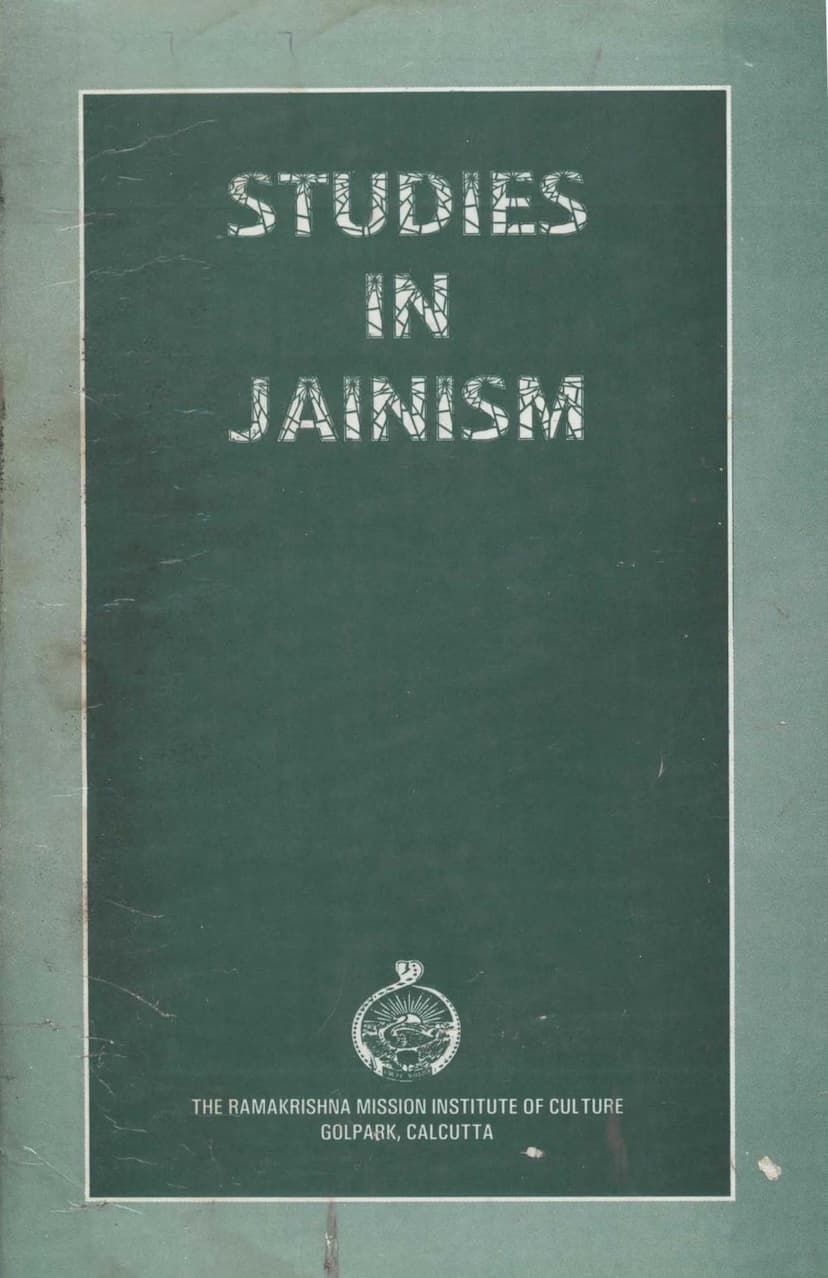Studies In Jainism
Added to library: September 2, 2025

Summary
"Studies in Jainism," published by the Ramakrishna Mission Institute of Culture in Calcutta, is a collection of essays exploring various facets of Jainism. The book aims to provide a comprehensive overview of this ancient Indian religion, its history, philosophy, ethics, and literature.
Key themes and contributions from the essays include:
-
Historical Context: Jainism is presented as an early post-Vedic, non-Brahminical religious movement, originating in northern India in the first millennium B.C. It emphasizes its roots with Rishabha (the first Tirthankara) and its codification by Mahavira (the 24th Tirthankara), an elder contemporary of Gautama Buddha. The text clarifies that Jainism, along with Buddhism, challenged Vedic authority and ritualism, advocating for a more egalitarian approach to religious life.
-
Core Philosophical Tenets:
- Atheism (in a specific sense): The book highlights that Jaina theology does not incorporate a creator-God. This distinguishes it from many other Indian traditions.
- The Tattvas (Realities): A central concept discussed is the seven realities (tattvas) that form the basis of Jainism: Jiva (soul), Ajiva (non-soul), Asrava (inflow of karma), Bandha (bondage), Samvara (stoppage of karma inflow), Nirjara (shedding of karma), and Moksha (liberation).
- Anekāntavāda (Non-absolutism) and Syādvāda (Sevenfold Predication): These doctrines are explained as Jainism's approach to understanding reality, acknowledging that truth is complex and can be viewed from multiple perspectives. This promotes tolerance and avoids dogmatism.
- The Nature of Soul (Jiva): The soul is described as eternal, conscious, blissful, and pure, possessing infinite potential. It undergoes modifications based on its association with karma and body. The book clarifies the Jaina view that the soul conforms to the size of the body it inhabits, a concept compared to gas filling a vessel.
-
Ethical Framework:
- Ahimsa (Non-violence): This is presented as the supreme ethical principle, permeating all aspects of Jainism, from religious rites to philosophical thought. It extends to all living beings, including plants.
- Vows (Vratas): The book details the vows for householders (Anuvratas or minor vows) and monks (Mahavratas or great vows), emphasizing self-restraint, truthfulness, non-stealing, chastity, and non-possession. The modern "Anuvrata Movement" is discussed as an adaptation of these vows for contemporary society, focusing on practical ethical conduct.
- Samyak Darśana, Samyak Jñāna, Samyak Charitra (Right Faith, Right Knowledge, Right Conduct): These "Three Jewels" are identified as the path to salvation.
-
Classification of Beings: The texts explore various Jaina classifications of humanity and living beings based on ethical conduct (sadhu/asādhu), purity of belief (samyaktvin/mithyātvin), social status (Arya/Mleccha, high/low family), spiritual progress (gunasthanas), and sensory development.
-
Sects: Śvetāmbara and Digambara: The historical division of Jainism into these two major sects is discussed, primarily focusing on the difference in practices regarding the wearing of clothes by monks and their differing views on the antiquity and authority of their scriptures. The essay also touches upon their differing interpretations of the Jaina canon and their historical development.
-
Jaina Literature: The book provides an overview of Jaina canonical literature, including the Angas, Upangas, and other texts, noting the differences between the Śvetāmbara and Digambara traditions regarding the canon. It also highlights the rich Jaina literature in Prakrit, Sanskrit, and Apabhramsa, encompassing philosophical works, narratives (like the Jaina Rāmāyanas), biographies, and commentaries, emphasizing their didactic purpose and the cultivation of virtues like non-violence and tolerance.
-
Comparative Studies: The essays frequently draw comparisons between Jainism and other Indian traditions like Buddhism and Hinduism (particularly the Upanishadic and Vedic trends). It argues that these traditions are not rival but rather complementary components of a larger Indian culture, with a history of mutual influence and reform. The book advocates for a unified approach to studying these traditions.
In essence, "Studies in Jainism" offers a scholarly exploration of Jainism, presenting its foundational principles, historical journey, ethical imperatives, and literary heritage, while also contextualizing it within the broader landscape of Indian religious and philosophical thought. It emphasizes Jainism's enduring relevance, particularly its core tenets of non-violence, non-absolutism, and respect for all life, as solutions to contemporary societal challenges.